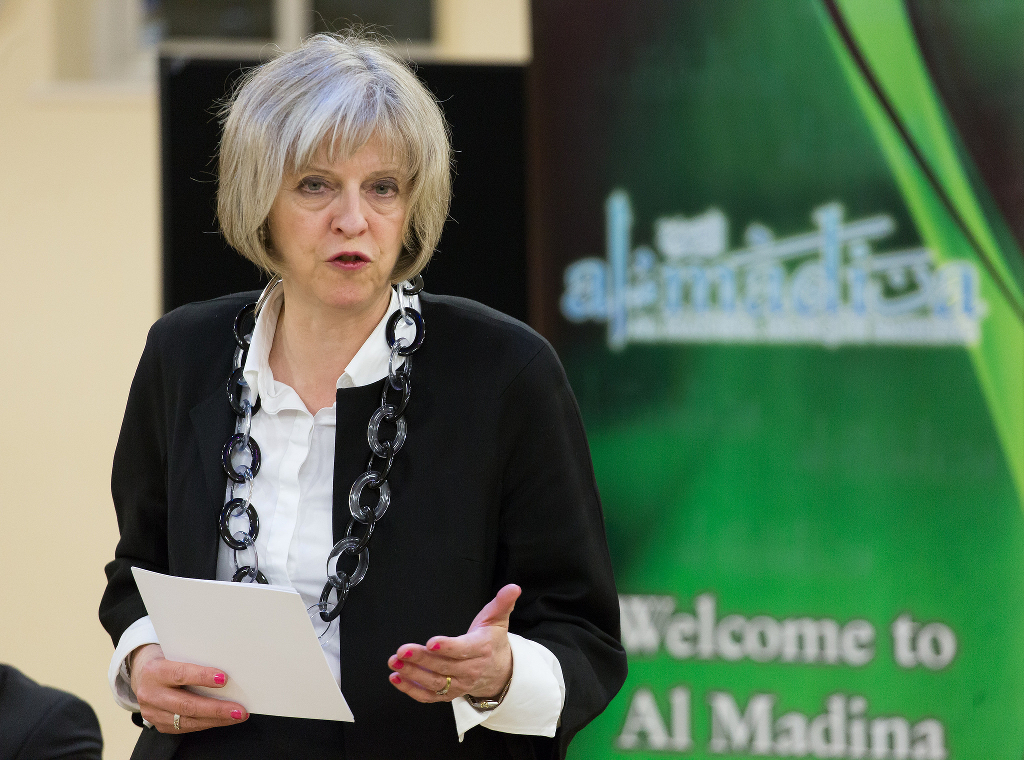May gave a welcome speech that was so left-leaning she could have been mistaken for one of the candidates in the Labour Party’s current leadership race.
“When we take the big calls we will think not of the powerful, but you. When we pass new laws we will listen not to the mighty, but to you.”
However, her appointment of largely right-wing cabinet ministers perhaps betrays where she really wants her Conservative government to sit. And, of the first six ministers appointed to some of the most powerful positions in government, only one was a woman, Amber Rudd. May’s later appointments were more gender balanced, though there continue to be more men than women in ministerial positions.
 May joins an impressive list of female leaders of political parties in the UK at the moment. With women at the helm of the Scottish National Party, Plaid Cymru, the Green Party, the Scottish Conservatives and the Scottish Labour Party, it is Labour and the Liberal Democrats that look like they are failing to stay on trend. Angela Eagle is currently battling socialist favourite Jeremy Corbyn to lead the Labour Party.
May joins an impressive list of female leaders of political parties in the UK at the moment. With women at the helm of the Scottish National Party, Plaid Cymru, the Green Party, the Scottish Conservatives and the Scottish Labour Party, it is Labour and the Liberal Democrats that look like they are failing to stay on trend. Angela Eagle is currently battling socialist favourite Jeremy Corbyn to lead the Labour Party.
May’s rise to Prime Minister took a shock turn when, less than a week into a leadership campaign that had been due to last several months, her opponent Andrea Leadsom dropped out of the race, leaving May to take up the top post unopposed. She looks ready for the job; level-headed, firm and decisive. But people who have followed her career since her election as a Member of Parliament in 1997 are only too aware that her voting record and political career are at odds with the “unified” approach she tried to convey in her welcome speech.
So, let’s look at the facts versus the rhetoric:
Theresa May on race and immigration
Theresa May’s Home Office made the UK a rough place for migrants and asylum seekers to negotiate. There was no welcome with a cup of tea and a biscuit; instead, vans telling people to ‘Go home’ toured the country and laws changed so that only rich people could bring non-EU spouses home to Britain with them. Thousands of foreign students were deported during their studies.
With responsibility for the prison system, too, May acknowledged in her speech that “if you’re black, you’re treated more harshly in the criminal justice system than if you’re white”. But that criminal justice system has been running under her watch for the last six years. She has to take responsibility for this discrimination and take action to make changes.
Theresa May on sexual and domestic violence
As Home Secretary, Theresa May oversaw the introduction of a new law that considered ‘coercive control’ to be illegal, under domestic abuse protection. This was a positive and helpful move that enabled victims of non-violent domestic abuse to receive protection under the law.
However, at the same time, she presided over Yarl’s Wood Immigration Removal Centre, where pregnant women can be detained indefinitely and there have been allegations of sexual violence by guards, which have not yet been addressed.
In addition, the brutal cuts that have taken place under the Conservative government’s austerity plan have had a severe impact on women’s access to sexual and domestic abuse services. Thanks to cuts in Legal Aid, 39% of domestic violence victims can’t access the help they need, and many refuges and rape crisis centres are struggling to find the funding they need to stay open.
Theresa May on LGBT rights
May has a decidedly mixed record on LGBT rights. Apparently very proud, now, of her role in helping to bring in same-sex marriage legislation, at the start of her career she voted against an equal age of consent and against allowing same-sex couples to adopt. She also voted in favour of IVF only being provided to women whose babies would have ‘male role models’, and against the repeal of Section 28, a hugely problematic law that banned the promotion of ‘pretend’ gay relationships in schools.
May was not present to vote on issues relating to the Gender Recognition Act, making her position on trans rights unclear.
However, even if her views on LGB issues improved, the behaviour of the Home Office, under her power, has been incredibly problematic in terms of how it deals with people claiming asylum on the grounds that they would be persecuted for being LGBT in their home countries. Intrusive questions, requests for sex tapes and offensive stereotypes have characterised the Home Office’s LGBT inquiries, and this has got to stop.
Theresa May on austerity and benefits
Theresa May has been part of a government that has imposed a ruthless austerity plan on its citizens. Disabled people have suffered most harshly, and women are hurt by it more than men. Young people, too, have lost a lot of benefits and entitlements that had previously helped them to grow into independent adults and pursue an education.
May wasn’t the Department for Work and Pensions secretary or the Chancellor of the Exchequer, but she has enabled them to carry out their cuts and has not voted against the government whenever they have imposed worse and worse ‘solutions’ on the electorate. She must take responsibility for the gross state of poverty in the UK and take action to help those who most need it, immediately.
But she won’t. Her kind, gentle speech tried to put us off the trail, but her actions over the coming weeks, months and years will demonstrate exactly what her position is on helping those who need help.
It is good for girls and young women to grow up seeing women in positions of power. But, having grown up under Thatcher, I can attest that when that when a woman wreaks havoc on workers, communities and minority groups, she does nobody any favours, nor does she inspire humane women and girls to follow her lead.
May’s husband, Philip, will support his wife in his figure-hugging suit, while her predecessor, Cameron, is best known for wearing some spectacular shoes.
Photo: UK Home Office/Creative Commons


I remember well Margaret Thatcher speaking in similar circumstances in 1979, “Where there is discord, may we bring harmony. Where there is error, may we bring truth. Where there is doubt, may we bring faith. And where there is despair, may we bring hope”. Judged by her actions while in power that must qualify as one of the most hypocritical statements ever made by a British politician. Considering the right wing extremists that Theresa May has collected in her cabinet her somewhat similar toned message should be taken with very large pinch of salt.